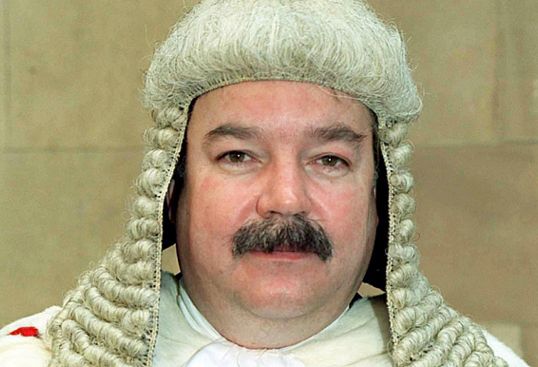The Court of Appeal has brutalised High Court Judge Peter Smith in a judgment allowing an appeal against his decision, calling his letter to a barristers' chambers "disgraceful". It said Smith's "shortcomings" dealing with evidential issues were "so serious" that the appeal "must be allowed".
Saudi prince Abdul Aziz had appealed against an unfavourable ruling by Smith on several grounds, one of which was an allegation that Smith was bias against Aziz' barristers, from Blackstone Chambers. In 2015 a Blackstone barrister, Lord Pannick QC, had criticised Smith in the Times for Smith's behaviour during a case involving British Airways, which Smith had hijacked to accuse the airline of deliberately losing his luggage. Pannick wrote in his article, “How we laughed. But the case raises serious issues about judicial conduct that need urgent consideration by the lord chief justice".
At Aziz's appeal, a letter from Smith to Anthony Peto QC, the head of Blackstone Chambers, was produced which revealed that Smith had called Pannick's article "quite outrageous", cried that, "I am extremely disappointed about it", sulked that Pannick's "opinion is not worth the paper it is printed on", and vowed "I will no longer support your chambers". Aziz argued that the letter was evidence of bias by Smith.
 |
Comes with baggage |
The Court of Appeal has now given its judgment allowing Aziz's appeal. While bias is not one of its grounds for doing so, Smith's approach to the evidence is. The court has absolutely whalloped him, calling his performance "unsatisfactory in a number of significant respects". Drilling down with gusto, The Master of the Rolls, Lord Justice Moore-Bick, and Lord Justice McFarlane, said:
- "he failed to identify in sufficient detail the questions that needed to be answered"
- "he failed to carry out a proper evaluation of all the evidence in order to test its strengths and weaknesses"
- Regarding criticisms of a witness: "he failed to deal with any of those criticisms and brushed them aside"
- On another witnesses' testimony: "he did not subject it to any serious degree of scrutiny"
- "he failed to draw together the evidence from the various different sources and analyse it in order to make his findings in relation to individual issues"
They ruled that Smith "owed it to the parties to identify the relevant evidence, discuss its significance and explain why he had reached the particular conclusion", which, "required him to analyse the various possible implications of different strands of evidence, as well as the inherent probabilities. He failed to do this".
In a extremely damning comment, they ruled that it was "clear" that Smith "in effect, took a short cut".
But they saved the motherload for Smith's barmy letter. Para 68:
"In his letter to the claimant’s solicitors dated 12 February 2016, the judge accepted that he should not have written the Letter. It is difficult to believe that any judge, still less a High Court Judge, could have done so. It was a shocking and, we regret to say, disgraceful letter to write. It shows a deeply worrying and fundamental lack of understanding of the proper role of a judge. What makes it worse is that it comes on the heels of the BAA baggage affair. In our view, the comments of Lord Pannick, far from being “outrageous” as the judge said in the Letter, were justified. We greatly regret having to criticise a judge in these strong terms, but our duty requires us to do so."
Allowing the appeal, the CofA ruled that the claim must be retried before a different judge.
Smith has not yet exploded over the ruling. He may not. In the notorious BA case, Smith said, "I have plenty of regrets about the way in which the Court of Appeal went about their decision [to remove me from another case], but, like you I suspect, we are no longer surprised by what happens in the Court of Appeal".
Category







